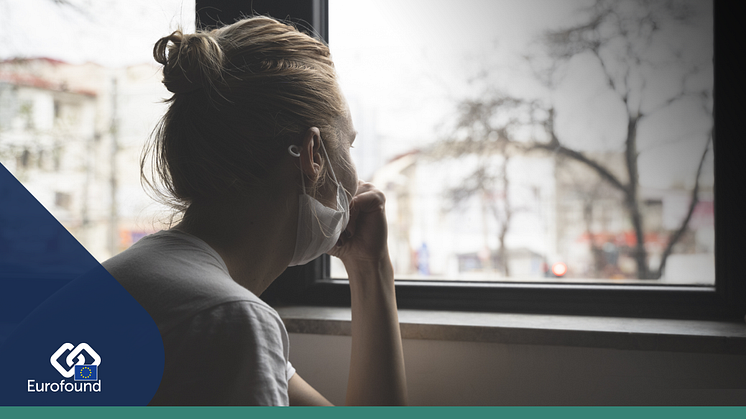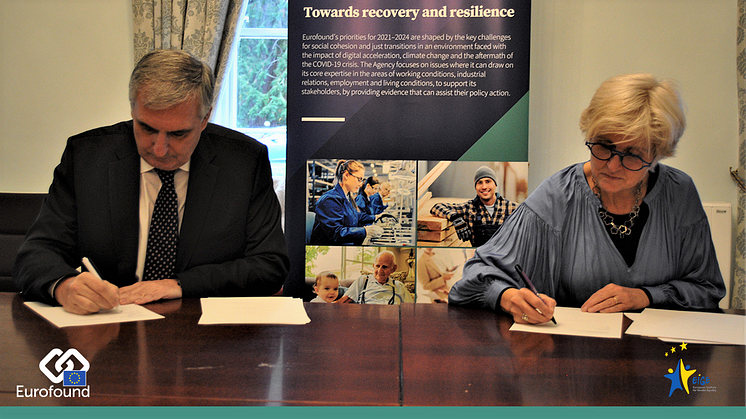
News -
Young people, women face long-term mental health effects due to COVID-19
Mental well-being indicators for young people and women have decreased disproportionately across the EU between summer 2020 and spring 2021, against a background of overall decline in mental health well-being across the EU. The long term effects of this for society and the economy are of serious concern. This is according to Eurofound’s large-scale Living, working and COVID-19 online survey.
The deterioration in mental health is especially affecting young people. The WHO-5 score (based on the frequency of positive feelings over the previous two weeks) for 18-34-year-olds is 43 out of 100 compared to 47 for those aged 50 and over and 49 for those aged 35–49. Almost two-thirds of people aged 18–34 are at risk of depression in the EU. School closures and social distancing during the pandemic contributed to a severe negative effect on young people's mental well-being.
Among women, well-being between summer 2020 and spring 2021 decreased from 51 to 44, while it decreased from 55 to 47 among men. Across age and gender groups, the lowest mental well-being in spring 2021 is registered among women aged 18–24 and women aged 35–44 (41 for both groups), though the largest drop in mental well-being occurred among men aged 18–24 (from 54 in summer 2020 to 44 in spring 2021).
In addition, the COVID-19 crisis saw women suffer more than men in terms of employment losses. Eurofound research shows that due to gender imbalances across different jobs in the economy, women working in low-paid services sectors have experienced the biggest employment loss impacts. Furthermore, with the closure of schools, work–life conflict escalated as people work from home and mothers of small children often most impacted. The Living, working and COVID-19 online survey indicated that 34% of those with small children (under 12) feel that their job prevents them giving time to the family, compared to 16% of respondents who have no children under 17 and 21% of respondents who have children aged 12–17 (July 2020 data).
Women with children under 12 reported more work–life conflicts in the July survey than both men with children of the same age and respondents without children or with children older than 12. This difference can be attributed to the unequal distribution of family responsibilities within the household.
The third round of the unique pan-EU survey was fielded in February and March 2021 and the analysis is based on a sample of 46,800 responses, and an overall sample of 138,629 across all three rounds. It sheds light on the social and economic situation of people across Europe following nearly a full year of living with COVID-19 restrictions.
Further information
- Report: Living, working and COVID-19 (Update April 2021): Mental health and trust decline across EU as pandemic enters another year
- Report: Living, working and COVID-19 (published September 2020)
- Report: COVID-19: Implications for employment and working life


